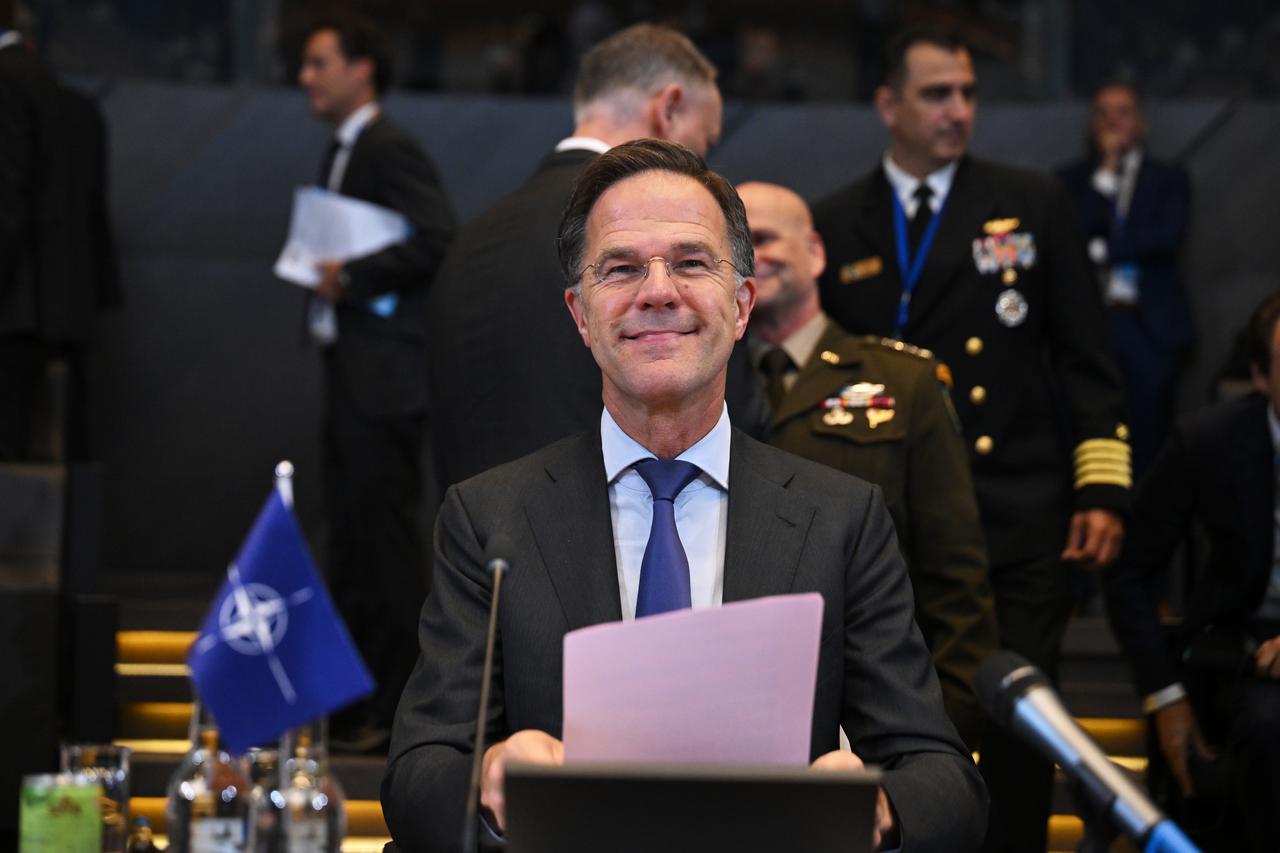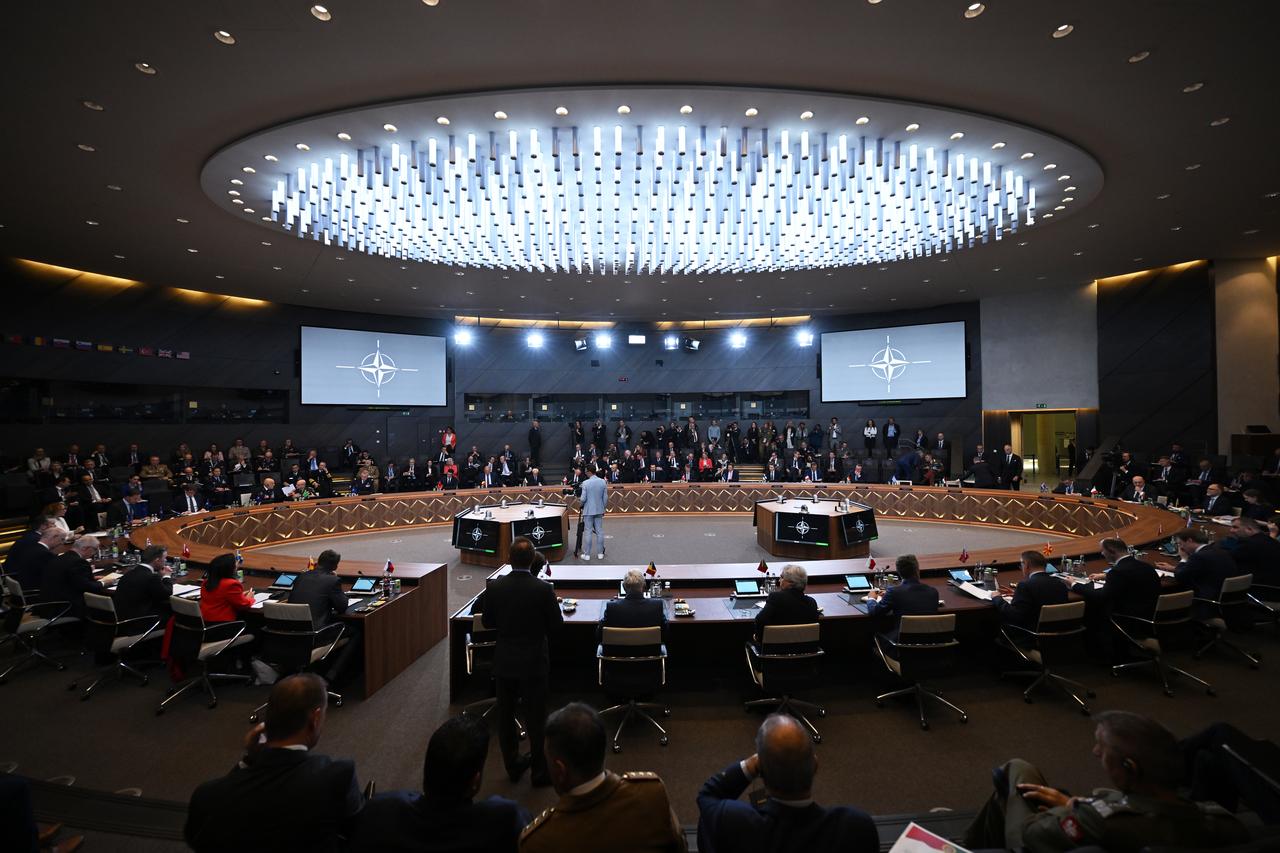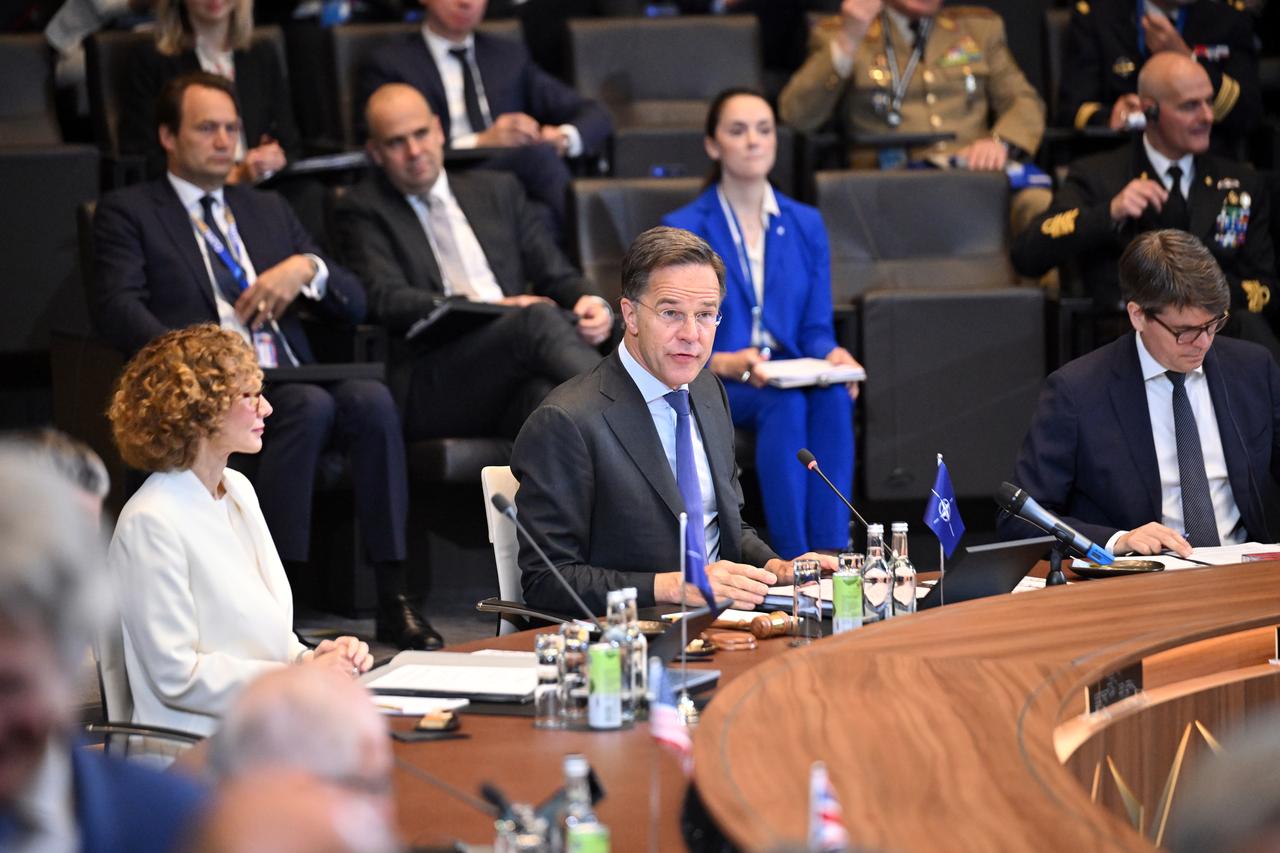
NATO Secretary General Mark Rutte on Monday urged a "400% increase" in the transatlantic alliance's air and missile defense capacities in response to the threat from Russia.
"We see in Ukraine how Russia delivers terror from above, so we will strengthen the shield that protects our skies," Rutte said in a speech to the Chatham House think tank in London.
To maintain credible deterrence and defense, he said that NATO needs "a 400% increase in air and missile defense."
His comments come ahead of a NATO summit in the Netherlands this month, where U.S. President Donald Trump is pressuring alliance members to announce a major boost in their military budgets.
Trump is pushing NATO members to increase their defense spending to five percent of their gross domestic product (GDP), up from the current target of two percent.
US Secretary of Defense Pete Hegseth said last week in Brussels that the allies were close to an agreement on the 5% target, which could be formalized at the summit in The Hague.

NATO members have been scrambling to bolster their defense capabilities since Russia launched its war against Ukraine in February 2022.
"Danger will not disappear even when the war in Ukraine ends," Rutte said.
"We need a quantum leap in our collective defense... We must have more forces and capabilities to implement our defense plans in full."
"Our militaries also need thousands more armored vehicles and tanks, millions more artillery shells."

NATO Secretary General Mark Rutte said on Thursday he will propose a new defense spending target of 5% of GDP at the upcoming Hague summit to strengthen allied deterrence amid rising global threats.
Speaking at a press conference following the NATO defense ministers' meeting in Brussels, Rutte said the proposed target includes 3.5% for core defense spending and 1.5% for defense-related investments such as infrastructure and industrial capacity.
"We agreed on an ambitious new set of capability targets. And this is so important; these targets describe exactly what capabilities allies need to invest in over the coming years," he said, calling the decision "historic."
He confirmed the new goal would apply to all allies, including the US, and expressed confidence that final agreement will be reached ahead of the summit, which is scheduled for June 24-25.